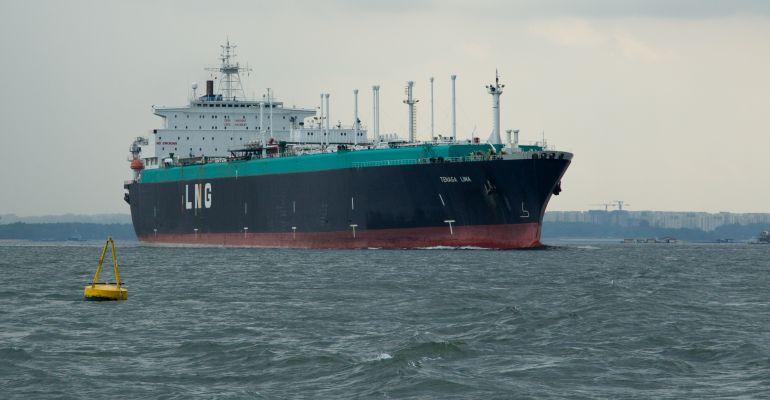The Sea Cargo Charter has just released its Annual Disclosure Report for 2023, covering results during the previous calendar year. On the voyage towards maritime decarbonization, following the course steered by the larger participants is a sensible, if not vital way to move forward. The Sea Cargo Charter is self-described as “a global framework for assessing and disclosing the climate alignment of chartering activities”, and in this report, gathers information from “33 Signatories, which…account for more…than 17% of total bulk cargo transported by sea [in 2022]”.
With its list of nearly three dozen reporting organisations including well known shipping market participants Cargill, Shell, Trafigura, Chevron plus 30 others, the Sea Cargo Charter reporting and insights are vital, informing the industry on emissions reductions on the eve of the International Maritime Organization (IMO)’s upcoming and all-important MEPC 80 meeting.
The 2023 report (looking at Signatories’ emissions from 2022 chartering activity) shows “impressive results, with alignment scores calculated with each score being assigned equal weight, was +1.7% and the median was +2.7%. Scores ranged from -21.8% to +21.4%, and 60% of Signatories had a score of +5% or less, as shown.
These alignment scores are based on an average reporting rate of 90% from Signatories for their annual activity. A negative score implies alignment while a positive score denotes misalignment to the decarbonisation trajectory.” The trajectory is based on the IMO’s Initial GHG Reduction Strategy to- “reduce the total annual GHG emissions by at least 50% by 2050 compared to 2008.”

In the graph above each dot represents alignment of reporting Signatories with the trajectory and white box is the mean.
Many of the challenges facing the IMO’s MEPC, and for the industry generally, really come down to “measurement”- which is defined in different ways by organisations seeking to lead the industry voyage; the Sea Cargo Charter alludes to this in multiple places in its 2023 report. It notes that: “The existing carbon intensity benchmarks set for chemical tankers and liquefied gas carriers were based on the Fourth IMO GHG Study. After extensive independent verification of measured data by the Advisory, as well as evaluation of the validation carried out for the Fourth IMO GHG Study against EU MRV data, the existing baselines were found to have high uncertainty.”
The measurement issues run deeper. In its reporting, The Sea Cargo Charter, established in 2020, uses the Energy Efficiency Operational Indicator (EEOI) as its numeraire. Yet, a related framework, also tied to the Global Maritime Forum, the Poseidon Principles for Financial Institutions, established in 2019- a year earlier, uses a different measuring stick- the Average Efficiency Ratio (or AER); which is forms the basis for the heavily criticised CII rating scheme which came into effect at beginning 2023. Sea Cargo Charter’s resources have been deployed towards fixing some of these problems. Referring to the issues with chemical tankers and liquified gas carriers, Sea Cargo Charter says- in the 2023 report that: “Following this data analysis, the baselines for these two vessels types have been modified” and that: “the Technical Committee and Advisory have been hard at work to understand the root cause of this and design a robust solution.”
The Sea Cargo Charter is calling for “ambitious targets on decarbonisation to be adopted at the IMO meeting [MEPC80] to adopt a revised Strategy for Reduction of Greenhouse Gas Emissions from ships,”- in the words of its Chair Rasmus Bach Nielsen, who is the Global Head of Fuel Decarbonisation at Trafigura.
Sea Cargo Charter not only recognizes the many challenges, measurement among them, and indeed, views it mission as assisting the industry to comply with the myriad of regulatory initiatives, with European Union’s Emissions Trading Scheme mentioned prominently, that have shipping in their sights.
In the new 2023 report, after listing a number of these schemes, the report’s authors note: “The Sea Cargo Charter will be an important tool for supporting Signatories in complying with such regulations, by allowing better assessment of their present positions and how these align with the various targets set by governments as well as companies, customers and financial institutions.”
The report adds: “The data transparency provided by the Sea Cargo Charter will be an important tool for companies to assess current performance and identify and undertake potential optimisations. This not only contributes to emissions reduction in the short term, but also ensures compliance with increasingly ambitious regulations and enables longer-term efforts to reduce shipping’s impact on the planet.”
Resouce: Sea Cargo Charter 2023 Disclosure Report
Copyright © 2024. All rights reserved. Seatrade, a trading name of Informa Markets (UK) Limited.
Add Seatrade Maritime News to your Google News feed.  |

